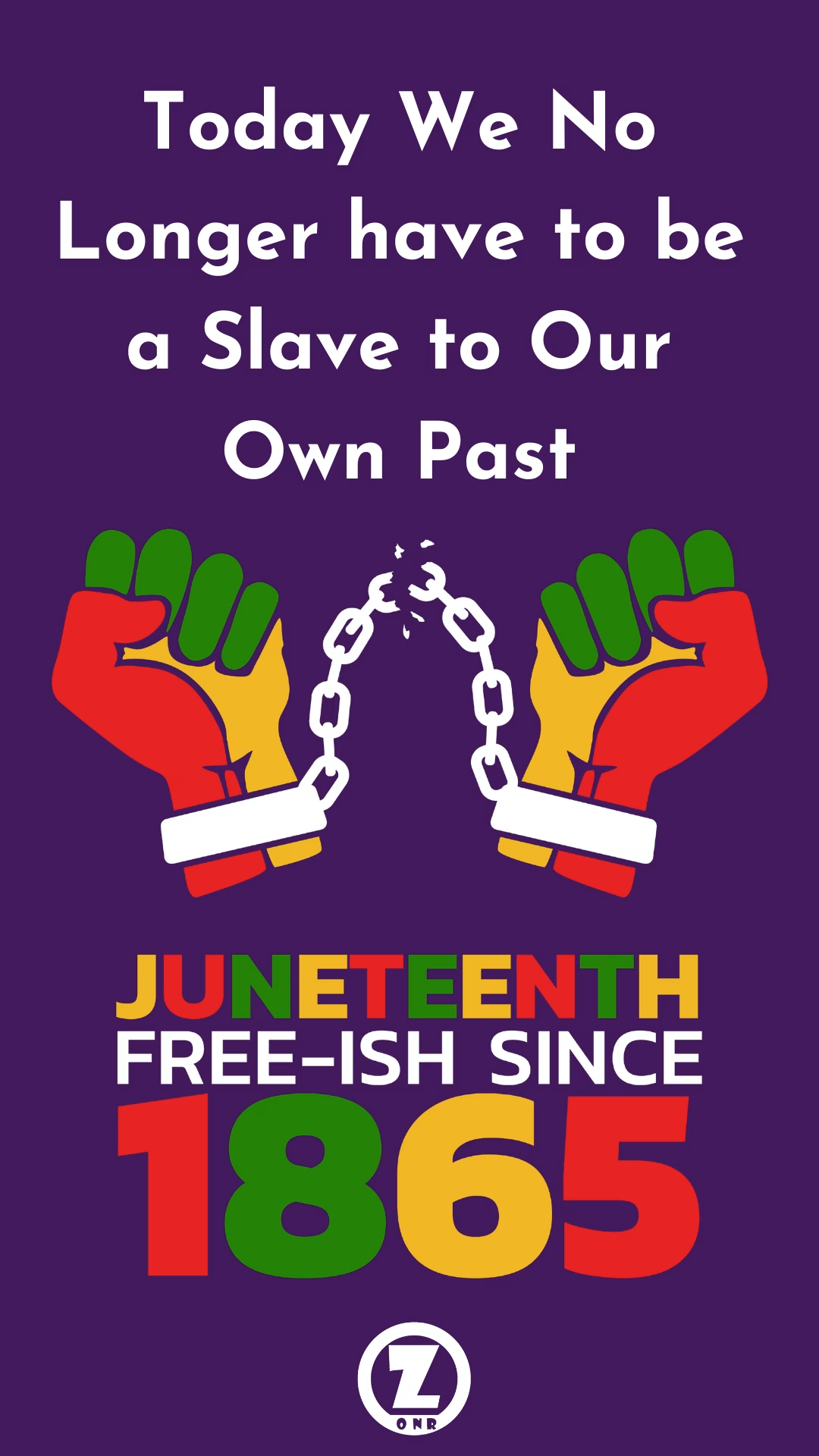Juneteenth holds significant historical and cultural importance as it commemorates the emancipation of enslaved African Americans in the United States. It marks the day when Union Army General Gordon Granger and 2,000 federal troops arrived to formally retake the port of Gaveston, TX. And proclaimed that the enslaved Black and African American people of Galveston and Texas – about a quarter of a million people – that the Emancipation Proclamation had freed them. Where, for two years, Southerners found a safe haven to hold onto their slaves. Today’s Stress Free Zone for explores the history and meaning of Juneteenth within a recovery wellness context:
We begin with a quote from MA’s Life with Hope. Which describes the experience of addiction and the feeling of being prisoners of one’s own mind. It draws a parallel to the historical context of Juneteenth. Where enslaved African Americans were also held captive, physically and mentally. Juneteenth reminds us of the significance of liberation, breaking free from bondage, and reclaiming autonomy and self-worth. It parallels the journey of individuals who have struggled with addiction. Seeking freedom from the chains of substance abuse and reclaiming their lives.
The next quote AA’s Big Book, introduces the Third Step Prayer. Which is a cornerstone of recovery programs like Alcoholics Anonymous. It acknowledges the need to surrender the ego and the bondage of self. In the context of Juneteenth, it resonates with the notion of releasing the psychological and emotional shackles of slavery. And embracing a new sense of self and purpose. The prayer emphasizes the willingness to align one’s will with a higher power and find guidance and strength in a journey towards personal transformation and freedom.
–
And the final third quote by Ralph Waldo Emerson encourages individuals not to be bound by their past. To embrace personal growth and progress, and to embark on a journey of self-discovery and recovery wellness. It reflects the spirit of Juneteenth. Which is not only about celebrating freedom from physical bondage. But also about acknowledging the resilience, strength, and capacity for personal growth and advancement. It encourages individuals to explore new experiences, challenge old narratives, and gain a deeper understanding of themselves and their history.
Juneteenth serves as a reminder of the struggles and sacrifices endured by enslaved African Americans. As well as a celebration of their resilience and perseverance. It provides an opportunity to reflect on the progress made towards equality and justice. While demanding we take action against systemic racism and implement the work that still needs to be done. Juneteenth celebrations often include gatherings to discuss what the community can do today. Along with, parades, music, food, and educational events. To honor the heritage and contributions of African Americans and foster a sense of unity and shared history.
In conclusion, Juneteenth is a significant observance that commemorates the emancipation of enslaved African Americans and symbolizes the ongoing struggle for equality and freedom. It represents the journey from captivity to liberation, both historically and metaphorically. And calls for reflection, celebration, and continued efforts towards justice and inclusivity. Juneteenth serves as a reminder that the fight against oppression and the quest for equality is a collective responsibility. And an ongoing process of growth, understanding, and action to right the horrific wrongs of the past.

